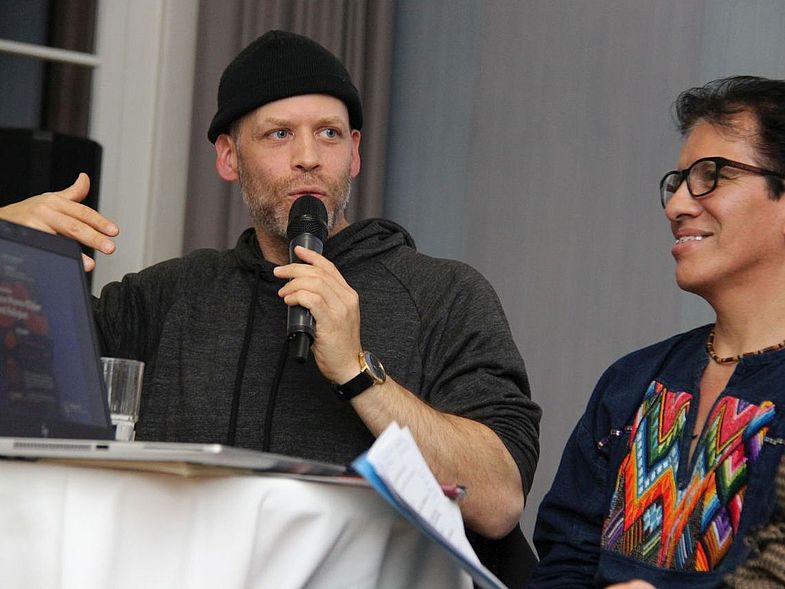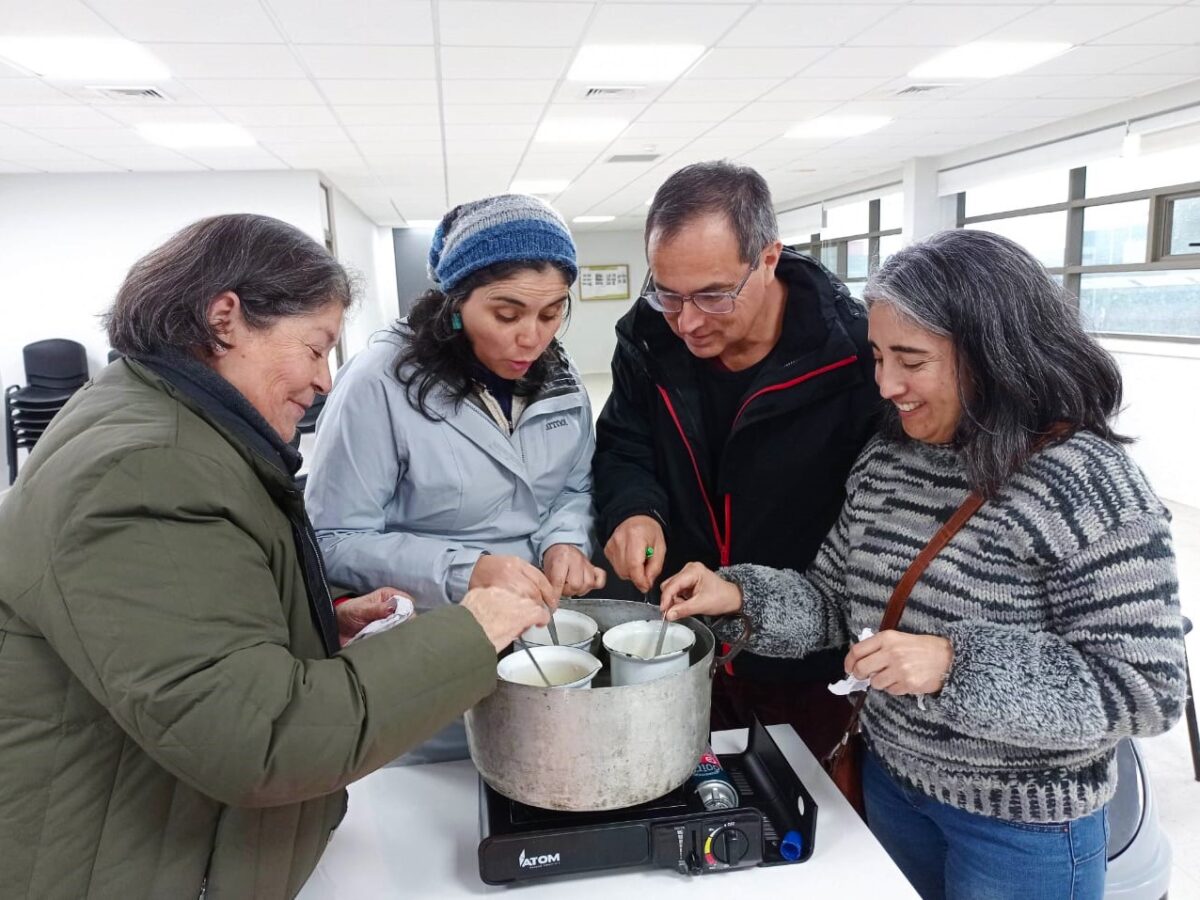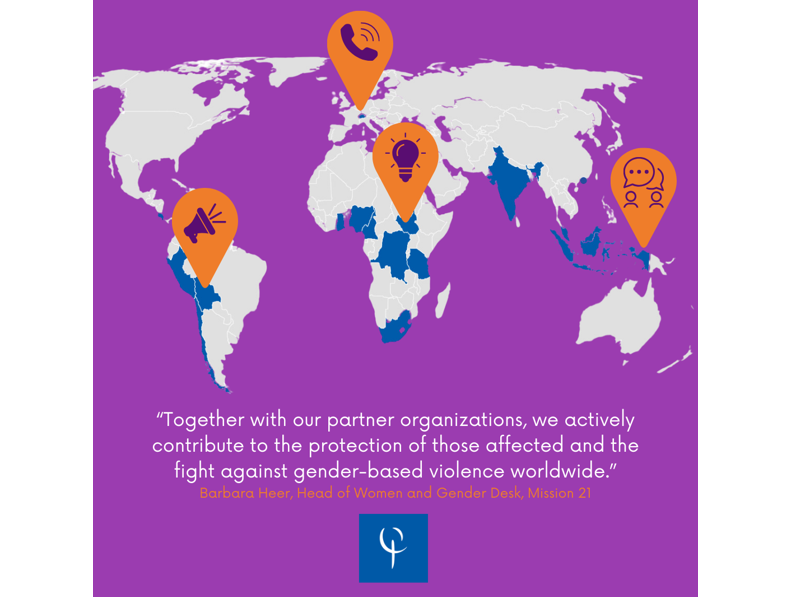At the event "Dialog International: new man pictures" the hall at Mission 21 was full. This was not only because one of the two guests was the well-known Basel rapper Black Tiger. The topic of gender roles has occupied the public - at the latest since #metoo and the women's strike. Men have less of a voice in this debate than women. For real change toward a liberated society, their voices are also needed. How can men reinvent themselves today, beyond macho and traditional family head?
Mission 21 invited two experts from Switzerland and Latin America on the topic of masculinities: Urs Baur a.k.a. Black Tiger, well-known Basel rapper and psychologist who is also active in children's and youth work, and Ángel Román López Dollinger from Guatemala, who works as a university lecturer at the Latin American Bible University for Mission 21 in Costa Rica.
The two experts report on male role models and stereotypes, including in the "extreme worlds" of Central American youth gangs and the hip-hop scene: Ángel Román worked and researched for a long time on the deradicalization of male youth in Guatemala who belonged to youth gangs such as the Mara Salvatrucha. These gangs are characterized by extreme and violent stereotypes of masculinity. Román says, "Young men feel picked up and empowered there, and the gangs have a strong cohesion and family connotation."
Jesus as an alternative man image
According to Román, the church and religion can help young people in this need for security and community - and convey new images of masculinity to them. The church, of all places, which has handed down and reinforced patriarchal structures over hundreds of years, as a place for alternative masculinity? "Yes," Román says, "because Jesus as a male identification figure does not correspond to the clichés of masculinity. These young people only know violence as a survival strategy. Jesus offers an important alternative for their actions - through his gentleness, his consistent non-violence, and the courage to show his emotions and even cry once in a while."
Urs Baur, aka Black Tiger, talks about exaggerated images of masculinity in hip-hop, especially in gangster rap, currently the most widespread trend in hip-hop. The cliché of the violent winner type, who is well received by the ladies and earns a lot of money, is very present. "Glorification of violence, sexism and homophobia are unfortunately very common in these circles," says Baur. All of this has led to him feeling increasingly uncomfortable in the hip-hop scene - and has even cancelled gigs because he simply can't stand behind openly sexist artists in the program.
Insecurity as a reason for masculine hardness
Whether it's the gangster rapper in Switzerland or the leader of a youth gang in Guatemala - obviously, such male-aggressive identification figures exert a great fascination on young men. Both Urs Baur and Angel Román see the reason for this in insecurity. Ángel Román says: "In Central America, people's everyday survival is characterized by violence. That's why many men identify with the role as strong protectors of the family - which, by the way, is also desired and demanded by many women."
In the Swiss context, psychologist and rapper Urs Baur a.k.a. Black Tiger locates the insecurity more internally: "Many young men have an enormous social burden breathing down their necks. They feel the pressure to become somebody and earn money." Many feel powerless - and violence or the fantasy of violence can give a false sense of power.
But how does social change occur, and what has already been achieved? Ángel Roman remarks: "There are many progressive ideas of new masculinities - but the majority society still remains the same." And Urs Baur says, "Compared to 30 years ago, I certainly already have many more opportunities for development as a man today; something is happening. You can't just plant this new "man image" in people - you can only inspire them to do it." The many inputs and questions from the audience showed that this discussion is far from over.
A woman from the audience asks the important question of how work on masculinities and feminism can cross-fertilize each other. "Actually everywhere," Urs Baur answers, "from my point of view we can't look at it separately at all. Because for society to change, everyone has to be on board."
"It's worth the effort"
In addition to their professional reflections, the two guests also share personal and touching anecdotes with the audience. Urs Baur, for example, says: "Today, many young people in Switzerland have separated parents. I myself know what it's like to grow up without a father, and I think that contributed to the fact that I felt so strongly attracted to this hyper-masculine hip-hop world. There was something missing, I needed an antithesis." And Ángel Román says, "It was difficult for me growing up as a petite man in Guatemala in a society where men derive their self-worth from physical strength. Sometimes I think that was part of the reason I studied - I needed to develop my strength in the spiritual in order to have legitimacy in society."
Is it liberating for the two guests to break away from typically male roles? Ángel Román hesitates. "In my cultural context, as an emancipated man, you're often caught between the fronts: You're looked at critically both by the self-proclaimed "real men" and by some women. It can be difficult and lonely, and so I can't say without reservation that it's liberating." And yet, "When I'm out with my daughter, formerly in a stroller, and have the privilege as a man to lovingly care for her, it's certainly worth the effort."
Mara Wirthlin







